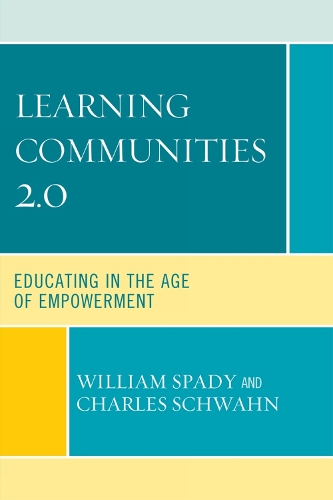
Learning Communities 2.0: Educating in the Age of Empowerment
(Paperback)
Publishing Details
Learning Communities 2.0: Educating in the Age of Empowerment
By (Author) William G. Spady
By (author) Charles J. Schwahn
Bloomsbury Publishing PLC
Rowman & Littlefield Education
16th April 2010
United States
Classifications
Tertiary Education
Non Fiction
371.2011
Physical Properties
Paperback
188
Width 154mm, Height 231mm, Spine 13mm
277g
Description
Learning Communities 2.0 is an insightful, incisive, and paradigm-shifting critique of today's coercive, "inside-the-box," Industrial Age testing and accountability movement, which authors Spady and Schwahn describe as a politically driven, backward-facing juggernaut masquerading as reform. They call the compelling intellectual, functional, and moral alternative described in this book Empowering Learning Communities (ELCs). Drawing on mountains of insightful research and innovative practices from their vast experience and international consulting work in education, they clearly, systematically, and compellingly describe the distinguishing and defining components of ELCs, why ELCs are desperately needed in today's Age of Empowerment, how ELCs differ from "educentric" schools, how ELCs function, the life-performance outcomes that shape ELCs' instructional priorities, and the strategies, frameworks, and transformational technologies that local communities can use to design and implement the key elements of ELCs in a number of creative ways. This is education's inevitable future.
Reviews
Total Leaders 2.0 and Learning Communities 2.0 present practical solutions that will help both new and experienced educational leaders to transform their school systems. -- Daniel A. Domenech, executive director, AASA, The School Superintendents Association; former school superintendent
Author Bio
William G. Spady has been a major catalyst and leader of educational change efforts in North America and abroad for over forty years. His vision of and commitment to elevating and transforming our entrenched Industrial Age paradigm of education is boldly stated in his seven books and countless published papers.
Charles J. Schwahn has been a serious student of leadership theory and practice for all of his professional career. In addition to his successful tenure as a school superintendent, he has consulted with organizations throughout North America for more than thirty years on the topics of leadership, change, future-focusing, and strategic design.
